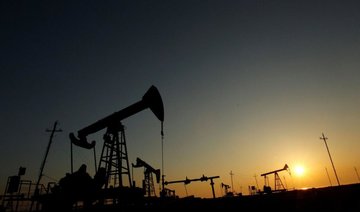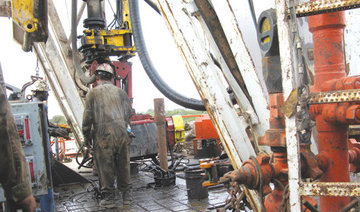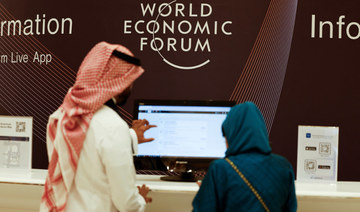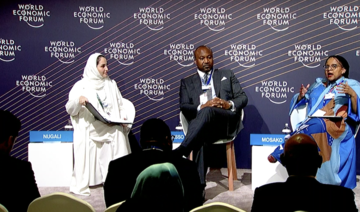LONDON: UAE Energy Minister and OPEC President Suhail Al-Mazrouei said the US shale oil industry was “not a threat” to OPEC member oil-producing countries.
Speaking at an event in London on Feb. 20, he said it was important that the oil industry does not repeat the “mistakes of the past,” where producers became “so excited” by rising shale oil production that they overproduce, causing an imbalance in the market and job losses.
A glut in oil supply caused global oil prices to plummet from mid-2014.
Al-Mazrouei said OPEC plans to meet US shale oil producers at CeraWeek event in the US next month when they will explore the outlook for shale, rather than relying solely on analysts’ reports on the industry.
He underlined the commitment of all 24 OPEC and non-OPEC countries, including Russia, to continue to cut oil production by 1.8 million barrels per day until the end of 2018, following last November’s agreement.
“We are focused on what we agreed in 2017 to work together to balance the market,” he said, refuting suggestions of talks within any countries about an exit strategy from the deal.
“I don’t think we are talking about exit strategy for the time being, we are focused on one target, which is balancing the market,” he said.
Al-Mazrouei said he would like OPEC and non-OPEC oil producers to continue to work together beyond 2018 to ensure “market stability,” as the “job is not complete.”
Commercial oil stocks in the Organization for Economic Cooperation and Development (OECD) have fallen by more than 220 million barrels since the beginning of last year, compared to the five-year average, he said.
There remains a further 100 million barrels to remove from the market to reach the five-year OECD inventory average.
Al-Mazrouei confirmed there were plans for an alliance of the 24 non-OPEC and OPEC producers, but he refused to give details while the plans were still in draft form.
He expressed the hope that the alliance would not only be based on benefiting members, but also on “how we contribute to world economic growth.”
And he also reconfirmed previously reported recommendations that oil producer countries need to have capacity buffers in place to help deal with any shocks to the market.
OPEC president says shale no threat to group
OPEC president says shale no threat to group
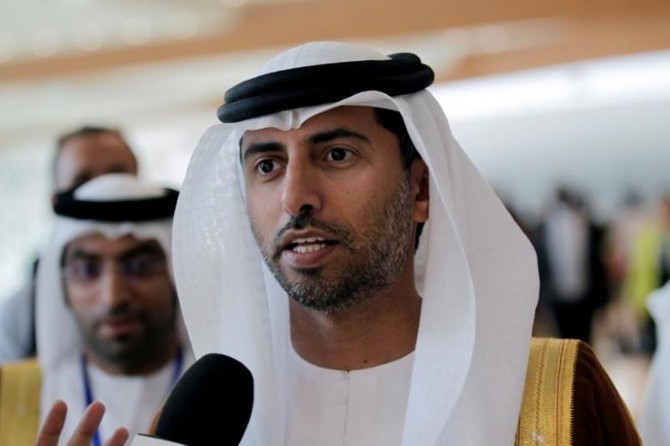
Oil Updates – prices fall 1% on Israel-Hamas ceasefire talks, US inflation concerns
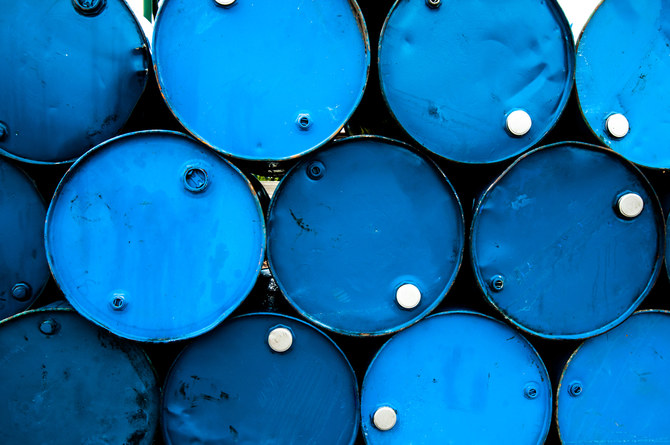
BEIJING/NEW DELHI: Oil prices were down 1 percent on Monday, erasing gains from Friday as Israel-Hamas peace talks in Cairo eased fears of a wider conflict in the Middle East and US inflation data further dimmed the prospects of interest rate cuts anytime soon, according to Reuters.
Brent crude futures fell by as much as 98 cents, or 1.09 percent, to $88.52 a barrel by 9:44 a.m. Saudi time. West Texas Intermediate futures were down 83 cents, or 0.99 percent, at $83.02 a barrel.
Stepped-up efforts to mediate a ceasefire between Israel and Hamas moderated geopolitical tensions and contributed to the weak opening on Monday, IG market analyst Tony Sycamore said. A Hamas delegation will visit Cairo on Monday for peace talks, a Hamas official told Reuters.
Israel’s foreign minister said on Saturday a planned incursion into Rafah, where more than one million displaced Palestinians are sheltering, could be put off in the event of a deal that involves the release of Israeli hostages.
A White House spokesperson said Israel had agreed to listen to US concerns about the humanitarian effects of the potential invasion.
Markets are also on watch for the US Federal Reserve’s May 1 policy review.
“Also playing a part are some nerves ahead of this week’s Federal Open Market Committee meeting which is expected to come with a more hawkish tone,” Sycamore said.
US inflation rose 2.7 percent in the 12 months through March, data on Friday showed, above the Fed’s target of 2 percent. Lower inflation would have increased the likelihood of interest rate cuts, which would stimulate economic growth and oil demand.
“The sticky US inflation sparks concerns for ‘higher-for-longer’ interest rates,” leading to a stronger US dollar and putting pressure on commodity prices, independent market analyst Tina Teng said.
The dollar strengthened on the prospect of higher-for-longer interest rates. A stronger dollar makes oil more expensive for those holding other currencies.
Further weighing on the outlook for oil demand, China’s industrial profit growth slowed down in March, official data showed on Saturday, in the latest sign of frail domestic demand in the world’s second largest economy.
Cumulative profits of China’s industrial firms rose 4.3 percent to 1.5 trillion yuan ($207 billion) in the first quarter from a year earlier, compared to a 10.2 percent rise in the first two months.
But oil prices could swing higher again if US inventory data and China’s PMI index show improvements this week, Teng said.
Brent had settled up 49 cents and WTI up 28 cents on Friday on concerns about disruptions to supply from events in the Middle East.
The market brushed aside potential supply disruptions stemming from Ukranian drone strikes on the Ilsky and Slavyansk oil refineries in Russia’s Krasnodar region over the weekend. The Slavyansk refinery had to suspend some operations after the attack, a plant executive said.
Algeria asked by Europe to boost gas supply
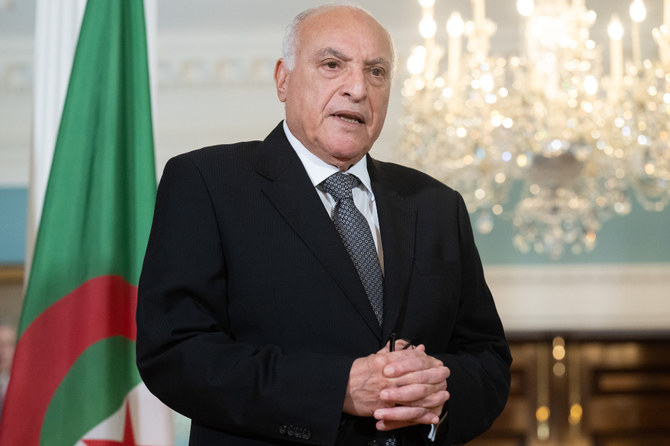
- Regional, global conflict affecting energy industry, says Algeria FM
- Key constraints are Israel war on Palestine, Ukraine-Russia battle
RIYADH: Algeria has been asked by its partners in Europe to increase gas supply because regional and global conflicts have affected the industry, the country’s foreign minister said on Sunday.
Speaking at a special World Economic Forum meeting in Riyadh, Ahmed Attaf said his country has established a “very complex network of cooperation” with its partners in the region.
“We are a Mediterranean country. We are a gas-producing country. We are asked by our partners in Europe more and more to deliver additional quantities of gas,” he said.
Speaking about how the global environment has changed over the past two-and-a-half years, Attaf said that conflict has affected the energy market, which requires more effective intervention from the UN and its Security Council.
“We have, of course, the conflict in Ukraine that is impacting our region. We have the Palestinian-Israeli conflict that is also impacting our region, and we have the Sahel region. And we are also feeling the impact of the deteriorating situation in this region on the Euro-Mediterranean area,” he added.
He said the “sophisticated” energy cooperation did not come at “the cost of our commitments to alleviating the effects on our environment.”
Saudi Arabia committed to preserving environment, water resources, minister tells WEF
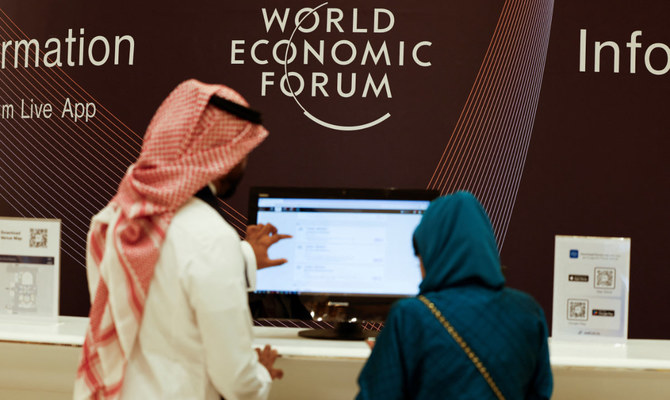
- Nation providing incentives for private sector to become more engaged, Abdulrahman Al-Fadley says
DUBAI: Saudi Arabia has detailed plans for the protection of its lands and environmental resources, the Minister of Environment, Water and Agriculture said on Sunday.
Speaking at the World Economic Forum in Riyadh, Abdulrahman Al-Fadley said: “We have devised our plans based on the preservation of our environment and the management of our water resources. The Kingdom is also providing incentives for the private sector to become more engaged and more responsible toward the environment.”
With 40 percent of lands around the world degraded and further degrading at an alarming rate, critical action is needed as the UN Convention to Combat Desertification COP16 is set to take place in Riyadh in December.
Al-Fadley said Saudi Arabia had preserved millions of hectares of land and set up programs for cloud seeding and increasing the number of dams in the country.
“This will not only be beneficial to the Kingdom but for the whole region,” he said. “With us hosting COP16 we are hoping to give the meeting the importance it commands. We don’t want matters to go back to the status quo after COP16 ends.”
Tariq Al-Olaimy, a member of the Global Shapers Community Foundation Board at the WEF, commended King Salman for his land restoration efforts.
“When you put nature first, you are equally putting people first,” he said. “Nature is our greatest collaborator … There is no successful growth story without successful land restoration and this starts inwardly, through our religion, community, values and moral clarity.”
Ibrahim Thiaw, secretary of the UNCCD, warned of global repercussions if the world did not pay heed to environmental safekeeping.
“Entire ecosystems are being destroyed through actions and inactions,” he said. “There has been a 29 percent increase in droughts in the past few years and that is affecting 1.8 billion people around the world. For poor nations that is disastrous and carries a large death toll of animals, people and agriculture. We have to be more proactive and not just emergency-ready. We must attempt to avoid emergencies.”
Thiaw said the Panama Canal’s functionality had been reduced by 12 percent, which was causing a problem for supplies.
“Demand is increasing while resources are shrinking,” he said. “As humanity we have been looking at resources as if they are unlimited. We have not been managing them. Companies need to reset their relationship with nature and we need to focus on land restoration to keep going.”
Naoki Ishii, director of the Center for Global Commons, had similar concerns.
“We are on a collision course,” he said. “The only solution is to modify our economic system. COP16 must be transformative for all of us. We need the political momentum to implement positive changes.
“If we are able to push those efforts, economically and ideally speaking, that will be a game changer.”
Saudi Arabia, UAE have world’s most ambitious decarbonization programs: WEF panel
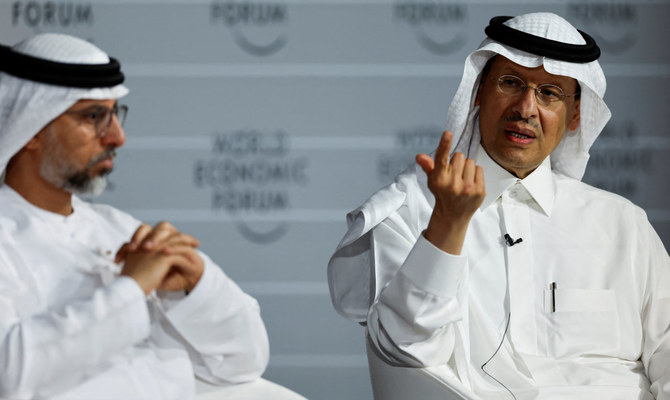
- “Solving sustainability problems requires technology and China has contributed greatly by increasing technical progress and making the cheapest energy available to the world”
DUBAI: A panel of ministers and experts gathered at the World Economic Forum in Riyadh on Sunday to discuss the road map for tripling renewables by 2030.
The UAE’s Minister of Energy and Infrastructure Suhail Mohamed Al-Mazrouei said his country’s goal would not only be reached but possibly exceeded by 2030.
“The UAE has been offering solar power to aid the world in reaching the goal of tripling renewables,” he said. “We have very few years until 2030, we need to work alongside and encourage countries to make the achievement by then.”
Li Zhenguo, president of Longi Green Energy Technology, said the Chinese government had been at the forefront of efforts to develop renewables.
“In 2023, China installed 216 solar power plants, which is more than 50 percent of the global capability,” he said.
“Solving sustainability problems requires technology and China has contributed greatly by increasing technical progress and making the cheapest energy available to the world.”
Marco Arcelli, CEO of Saudi-based ACWA Power, said he was surprised by the momentum in the region.
“Saudi and UAE have the most ambitious decarbs programs in the world. There is a speed and dimension you don’t see much elsewhere,” he said.
“There is leadership with a vision, there is cheap energy available and I believe you will start seeing greenshoring in the Kingdom by 2030. Lots of upcoming projects in the country, be it NEOM or others, will be solar driven and using renewable energy.”
Kuwait’s Minister of Electricity, Water and Renewable Energy Salem Alhajraf said there was a need to increase global production capacity.
“Innovative financing is key,” he said. “We need to move from small giga-sized projects to deploying renewables. Cities or towns with small populations can possibly have all their needs met by solar power.”
Stephanie Jamison, global Resources Industry Practices chair at Accenture, said her company had been developing guidelines for community engagement and nature transition.
“By conducting surveys and interviewing various CEOs, it has become clear that companies understand the impact they are making on nature. And so, partnerships between companies and proactive partnerships between companies and the community is one way to tackle challenges.”
Saudi energy minister, EU official discuss cooperation on clean energy
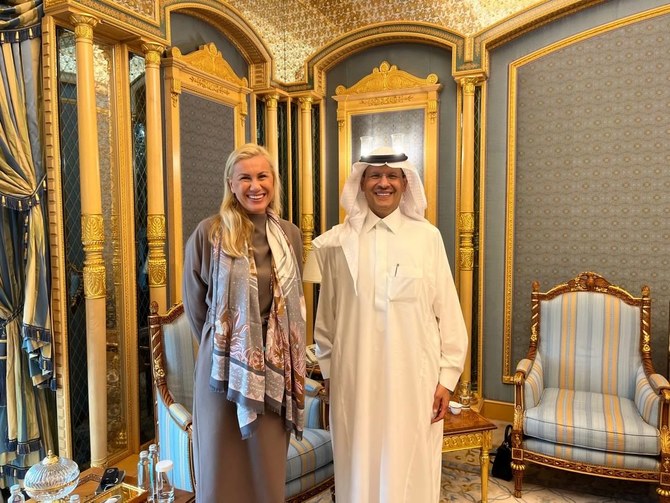
RIYADH: Saudi Energy Minister Prince Abdulaziz bin Salman on Sunday held talks with EU Energy Commissioner Kadri Simson to discuss prospects for cooperation in the field of clean energy.
The top officials met on the sidelines of the World Economic Forum in the Saudi capital, the Saudi Press Agency reported. They discussed ways to strengthen bilateral ties, boost cooperation for the promotion of green energy and advance the goals of the Paris Agreement and ensure the implementation of the outcomes of the COP28 held in Dubai last year.
The Paris Agreement is an international treaty on climate change that was adopted back in 2015. It was negotiated by 196 parties at COP21 in France and covers climate change mitigation, adaptation, and finance.
They reaffirmed the common goals of Saudi Arabia and the EU and the determination of both parties to accelerate private investment in the renewable energy sector, cooperate on electricity interconnection and the integration of renewables into the electricity grid.
The officials stressed the need to strength the electricity supply infrastructure through demand side management smart grid. They also discussed carbon capture, utilization and storage technology and opportunities for industrial partnerships in those sectors.
They also shared their view on building on the UNFCCC, the Paris Agreement and COP28 outcomes. The officials also discussed a Saudi-EU memorandum of understanding to boost cooperation in the energy sector.
According to SPA report, they were of the view that such an MoU should provide a solid and mutually beneficial basis for orienting and anchoring investment decisions in the energy and clean tech sectors, involve and mobilize stakeholders from the public, private and financial sectors, and lay the foundation for a more sustainable and secure energy future.
The European Commission and Saudi Arabia aim to conclude the MoU in the next few months.


